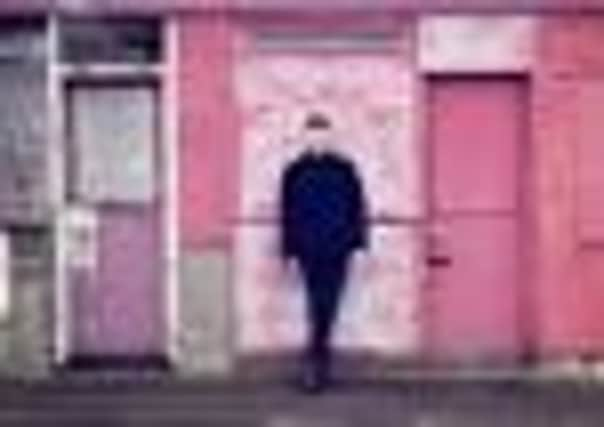Album review: Ricky Ross: Trouble Came Looking


Ricky Ross: Trouble Came Looking - Edsel, £14.99
* * *
Deacon Blue command such affection in their heartland that they could just merrily truck on for years playing to contented audiences.
Until the release last autumn of The Hipsters, their first album of new material in over a decade, that appeared to be what was happening but now the Glasgow-based group have some fresh creative momentum behind them and are on a roll which will take them all the way to the newly opened Hydro by the end of the year.
Advertisement
Hide AdMeantime, frontman Ricky Ross’s tandem solo career has never quite caught fire and seems too easily shunted to the backburner when there is band business to attend to. But not this time. With his sixth solo album, Ross has launched a parallel offensive – though offensive is not really the word. Trouble Came Looking is more like straight talking with a spoonful of sugar to sweeten the bitter medicine, and it provides a striking alternative to Deacon Blue’s polished Scotpop sound. Ross describes these songs as “barely written”, many coming together for the first time in the studio in deliberately unvarnished acoustic arrangements, studded with banjo, mandolin and double bass played by Lewis Gordon and Deacon Blue’s Greg Philp.
The sentiments are bare too, with Ross tackling his subject matter head-on in Woody Guthriesque storytelling mode. As the title suggests, Trouble Came Looking has the blues, the 21st-century austerity blues to be precise. This is a cohesive collection in which the little man and the Everyman are pitted against – who else? – The Man, and will be promoted, appropriately, with a grassroots local tour for local people.
The title track is a cautionary conversational urban folk blues tale about the insidious appeal of acquisition (“I was just giving my kids the best of all things when trouble came looking for me”) and how quickly one can sleepwalk into debt (“don’t just say yes when somebody tells you it’s free”). There are parallels with Pull Up Some Dust And Sit Down, Ry Cooder’s response to the second Great Depression, but this is much gentler in tone and execution than his angry, biting satire. Instead, Ross makes full use of his world-weary timbre. These anxieties about supporting a family spill over into Now I Smoke, Like I Used To Pray, which practically tells its story in the title, with Ross adding wistfully “and I used to pray all times of day.”
He moves momentarily away from his folkier instincts on Any Drug Will Do. Its immediate indie pop melody could easily be souped up into a chart-baiting number but Ross resists the urge to over-egg and the song retains its integrity and impact as a result. Next, he punks it up on The Fear, a song of resolve which has the flavour of an unplugged Foo Fighters number, with its insistent, strident strumming and scrappy handclaps adding to the momentum.
How Will The Heart Survive is a poignant exploration of the dehumanising effect of our disadvantaged dealings with bureaucracy and business, whether big or small, which boasts harmonium, banjo, a sweet, sorrowful folk melody and a whole lot of humanity. In contrast, Good Man is a dark, rather desperate blues in which an authority figure tries to justify his actions.
Keeping the human interest to the foreground, Ross creates a modern murder ballad – more of an accidental-death ballad, really – in the haunting shape of A Strange And Foreign Land, which gives a heartbreaking first-person account of the fate of the Chinese cockle-pickers who were cut off and drowned in Morecambe Bay in 2004.
Advertisement
Hide AdThis dovetails neatly with the following Sang O’ The Saracen Maid, a musical setting of a poem by Craig Smillie, dedicated to travellers and asylum seekers, in which the eponymous narrator is seduced and abandoned by a Crusader, and left to mourn her fate in an alien environment, much like the protagonist of Robert Burns’ Slave’s Lament.
These two songs appear to form an exploitation trilogy with We Shall Overcome The Whole Wide World, which was inspired by his daughter’s passion for the issue of human trafficking, and finds Ross back in his pop lane, performing a more hopeful piano ballad with an effective light touch.
Advertisement
Hide AdHe puts a more positive spin on the lot of the migrant worker on Nothing More Than Travelling Now, a soft, happy-sad hobo song, before landing back in urban UK on Taxi Drivers Ride The Lights. This observational, banjo-dappled ditty is less directed and trenchant than the other songs, and feels more disposable as a result.
But Ross brings it all back home on the twinkling Holy Night, an openly sentimental celebration of familiarity, which wraps a comfort blanket round the listener, like a simple act of kindness in a cruel world.